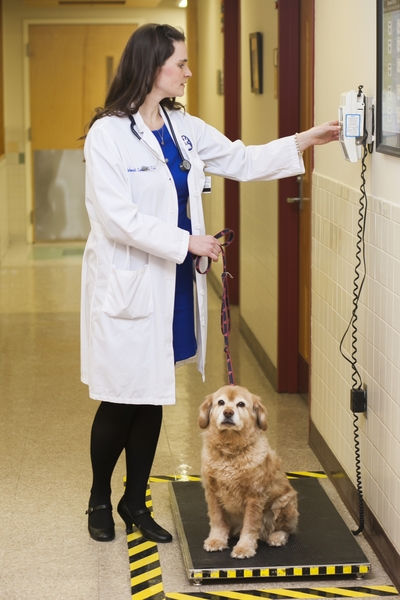The Tufts Obesity Clinic for Animals specializes in customized weight management plans that allow for safe weight loss with expert guidance from a board-certified veterinary nutritionist within the Clinical Nutrition Service. Obesity is a common health problem in dogs and cats that has been associated with many serious diseases that can affect quality and length of life. Obesity in pets has been associated with diabetes, pancreatitis, hyperlipidemia (high fat levels in the blood), joint disease, skin disease and even a shorter lifespan. Individualized weight loss programs with careful monitoring can help your pet become slimmer, happier and healthier. The Tufts Obesity Clinic for Animals specializes in:
- Weight loss plans that have previously failed
- Weight loss plans in pets with special dietary needs
- Multi-pet or multi-owner households
- Personalized care and guidance


